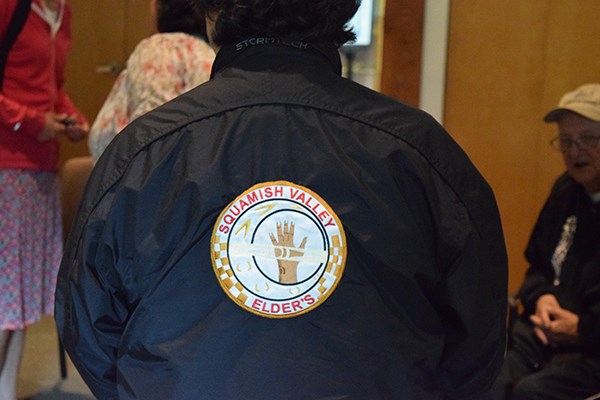It may take seven generations for reconciliation to truly take place between natives and non-natives in this country: That was one of the key takeaways of the fifth Truth and Reconciliation Study and Discussion Group at the Squamish Library on Friday.
The one-hour sessions bring Squamish Nation and community members together to discuss different aspects of Honouring the Truth, Reconciling for the Future: Summary of the Final Report of the Truth and Reconciliation Commission of Canada.
The report offers 94 recommendations to help heal the damage caused by systemic racism and the Canadian Indian residential school system, which operated from the 1870s to 1996 when the last school closed.
The approximately 10 participants in the library session on Friday included a mix of Squamish Nation elders, members and non-native community members.
The topic Friday was the “The Challenge of Reconciliation,” which is a section within the summary report.
Some challenges identified by the group included political roadblocks, continuing racism, lack of knowledge and understanding, and the education system.
“I think barriers to reconciliation is huge,” said the Nation’s Christine Baker. “You talk about social development-taking away our children – you talk about education – we have only had 50-plus years to get a post secondary education, we weren’t allowed to years ago, those kinds of things.”
Baker, who works as a manager for child, family and health services within the Nation, spoke of the need for patience from non-natives.
“I think there are some people out in the community who say ‘Just get over it,’” she said. “It is really hard to forget – forget your language, forget your parents, forget, forget, forget. Today… families are challenged, elders are challenged, children are challenged because we are scrambling trying to figure out what is a family because we have lost so much. ”
What individuals can do, Baker said, is to understand and then educate others on the true history of First Nations, so there is less judgment of First Nations people.
“Reconciliation to me is give us time, understand us and honour us, because we are still healing…, they say [it will take] seven generations for us to completely heal from the damage of residential schools.”
District of Squamish Councillor Karen Elliott said Baker’s call for patience resonated with her.
“I think for a lot of ‘white’ people reconciliation is like an event, you do one big thing, so you make an apology or you name a piece of land after something and we want it to be done quickly, and so I think that statement is profoundly important,” she said. “This is not one event or a moment in time, it is a reconciliation journey and it is going to take a long time and I know for myself I would love to do things quickly, and fix it and make it right,” she said. “I think we have to stop thinking this way… we have to be mindful of that healing journey that will outlive all of us.”
Squamish Nation Elders Kiyowil (Bob Baker), Chésha7 (Gwen Harry) and Humteya (Shirley Toman) shared stories of their time in residential schools and of the racism they have faced but also spoke to what needs to happen for their to be eventual healing.
“It is unfortunate that your history is our history and you don’t know anything about our history because you have never been exposed to us,” Humteya said. “I think now that it is being taught in the schools it is a real beautiful thing that people are going to learn how we have survived this long already.” She added a hopeful development is the young once again learning the once almost-extinct Squamish language. She recalled a young nation member talking to her in the Squamish language.
“It was a beautiful thing,” she said to be able to see the Squamish language continue.
The sessions run every other Friday from 1-2 p.m., until Aug. 19.
The next session is Aug. 5 and the topic is Calls to Action.



